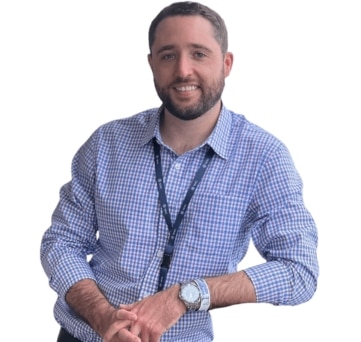Prescription drug abuse is a public health crisis affecting families across the country. A study from the National Institute on Drug Abuse found that almost 9 million people struggled with prescription painkiller abuse in 2021. These prescription pain medications are used to reduce discomfort during the healing process after surgeries or accidents. Unfortunately, they are very powerful and carry the potential for abuse. Those who abuse prescription medication are setting themselves up for serious health problems in the future. That includes overdose.
Family members and friends of prescription drug abusers can struggle to understand the addiction. And it can be difficult to offer help when there are so many things to know and terms to understand. There are a large number of names associated with prescription pain medication, and that can lead to confusion. You might hear a drug referred to by its brand name. Or you may hear the generic name of the drug. Then there are street drugs that are similar in composition and affect to prescription pain medication, and those can have their own nicknames.
You may have heard the umbrella terms “opiate” and “opioid.” Many people use these two terms interchangeably, but there is a key difference between opiates vs opioids.
Knowing as much as possible about someone’s addiction issue is key to helping them find the treatment that best suits their needs. Vogue Recovery Center can help you or your loved one navigate opiate and opioid abuse so you can move on to a better life.
Opiates: What Are They?
The first opiates were used by societies thousands of years ago. These substances were made from a common yellow flower known as the poppy plant and were used recreationally and for pain management. Some of the most-used opiates include:
While morphine and codeine are found in medicine, heroin is an illegal drug with no medical value. It is used only to get high and, like all opiates, carries a high risk for addiction, abuse, and overdose.
Opioids: What Are They?
If opiates are made from poppy plants, then what are opioids? As scientific capabilities got better, the medical community created synthetic pain medications that function in a similar way to opiates. These drugs are known as opioids, and they are, at least in part, created in laboratories. Opioid use disorders can happen to anyone since prescription opioids are so widely available from doctors.

There are hundreds of different opioids. They are used in medicine to help reduce pain and discomfort. Some, like methadone, are even used to help people overcome addiction to a different opioid. These drugs are prescribed by physicians, but when misused, they are dangerous and even deadly. Opioid use disorders are associated with higher overdose death rates. When used for a long period, people can build up a tolerance so larger doses are needed to feel the same effects. According to data from the U.S. Department of Health and Human Services, more than 48,000 people died from an opioid overdose other than methadone over 12 months.
Opiate vs Opioid: Which Is More Dangerous?
Both opiates and opioids are powerful and addictive drugs. It does not matter if they are given by a doctor or purchased on the street. While some opiates and opioids can be useful medically when administered according to a doctor’s orders, they still carry a high risk for abuse.
Someone in a car accident may be prescribed pain medication to help make healing more comfortable. When the course of their medication runs out, they may find they experience cravings or withdrawal symptoms. They may engage in dangerous behaviors to try to get more drugs or perhaps turn to another opiate or opioid that’s available.
It doesn’t matter why someone is using the drugs. Anyone struggling with opiate or opioid addiction should get in touch with a treatment center that can help turn their life around. Vogue Recovery Center offers comprehensive opioid and opiate treatment plans. These plans are created by skilled substance abuse disorder counselors. Those who abuse prescription opioids or illegal street opiates are putting themselves at risk for long-term health problems and even death, if left untreated.
Prescription Drug Addiction Treatment
Finding professional help for prescription drug addiction is key for recovery. Opiate and opioid abuse recovery is often combined with mental health treatment so you can address the underlying issues that may have led to substance abuse in the first place. Vogue Recovery Center employees healthcare professionals who oversee all aspects of the recovery process, from detox to aftercare.
Here are some of the levels of care offered at Vogue Recovery Center:
Medical detox – Opioid and opiate detox can be challenging. It involves getting all substances out of the body. That’s why having the team at Vogue Recovery Center on hand is so valuable. Our medical professionals manage withdrawal symptoms to make detox as comfortable as possible for each client.
Residential treatment – Truly getting well from prescription drug abuse may require that you spend time at a residential rehab center. These 30-to-45-day programs allow you to cut out all distractions and focus entirely on getting sober. Individual and group therapy are part of a full continuum of care that also involves holistic programs and skills development.
Partial hospitalization program (PHP) – PHP is a level of care that allows you to manage your life obligations, like work, school, or family, while getting help. You may spend around six hours a day undergoing treatment at Vogue Recovery Center, then go home at night.
Intensive outpatient program (IOP) – IOP involves regular meetings at the treatment center, but your focus will be even more so on your transition back to normal life. You may go to meetings a few times a week while learning the valuable coping skills you need to stay sober in the long run.
Outpatient rehab – One of the last steps in addiction recovery, outpatient rehab allows the most flexibility of any level of care. Usually, clients attend meetings and therapy once or twice per week and live their everyday lives outside of treatment.
If you’re worried about a loved one, Vogue Recovery Center is here to help. Our addiction treatment plans are based on evidence for effective recovery. Opiate and opioid abuse ruins lives. Getting help right away is the best way to beat addiction and move on to a happy life. Call Vogue Recovery Center today to learn more about insurance verification as well as our opiate and prescription opioid treatment plans.
References:
- https://nida.nih.gov/publications/research-reports/misuse-prescription-drugs/what-scope-prescription-drug-misuse
- https://www.oregon.gov/adpc/Pages/Opiate-Opioid.aspx
- https://www.mayoclinic.org/diseases-conditions/prescription-drug-abuse/in-depth/how-opioid-addiction-occurs/art-20360372
- https://www.hhs.gov/opioids/statistics/index.html

Evan Gove

Latest posts by Evan Gove (see all)
- Dangers of Mixing Prozac and Alcohol - September 10, 2024
- Is Prednisone Addictive? - September 9, 2024


